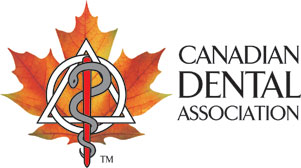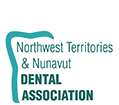Counterfeit, sub-standard and non-equivalent N95-like respirators are flooding the marketplace as the demand for N95 respirators continues to rise. These products have not been certified and will not deliver the same respiratory protection as N95 respirators which are certified by the U.S. National Institute for Occupational Safety and Health (NIOSH).
N95 Compliance, Fit, Varieties and Markings
- Compliance: NIOSH-certified N95 respirators are compliant with specifications which ensure that when used properly, they will filter at least 95% very small test particles, such as airborne pathogens.
- Fit: NIOSH-certified N95 respirators have a strong head band design (not ear loops) that applies the needed pressure to achieve a proper fit and seal on the face.
- Varieties: N95 respirators come in two varieties, including a commercial grade that is not tested for fluid resistance and a surgical grade that is tested for fluid resistance.
- Markings: NIOSH-certified N95 respirators have an approval label on or within the packaging of the respirator (on the box itself), as well as markings on each of the individual respirators.
N95 equivalents
In response to the shortage of N95 medical grade masks, Health Canada has approved a select number of alternative masks (including select KN95 models by specific manufacturers) and half respirators that meet or exceed NIOSH standards. KN95 models that meet the filtration criteria continue to be sold and used as equivalent to NIOSH-certified N95 respirators. Public Works and Government Services Canada maintains a list of NIOSH N95 alternatives.
Failed KN95 Respirators: Design, Filtration and Fit
Recent testing performed by the Centers for Disease Control (CDC) identified significant concerns with the fit and filtration of some KN95 respirators, specifically those with ear loop design which generally did not achieve proper fit. Several models of KN95 respirator also failed to meet the filtration criteria of 95%.
Health Canada requested manufacturers and importers to stop the sale of any products that do not meet the filtration criteria of 95%. These masks may still be available for sale, but should be re-labelled as "face masks," and not "respirators."
What to Do
Check to see if your N95 respirator has been certified by NIOSH by entering the approval number, which can be found on the respirator, in the NIOSH database. If your mask is fraudulent or unauthorized, stop using it.
For KN95 respirators that you may have already purchased, check the recently revised FDA-approved manufacturers listing.
Beware of Importing Personal Protective Equipment (PPE)
As the health care industry continues to struggle with PPE shortages, individuals should take steps to ensure the supplies they are purchasing meet all the applicable regulatory requirements since this is the only way to ensure that the products will perform as expected.
Buyers are advised to exercise extreme caution before importing any type of PPE from international manufacturers. Note that anyone who imports medical devices usually inherits the responsibilities of the foreign manufacturer to comply with Canadian regulations. These responsibilities can be extensive and result in significant liabilities for the importer if issues arise.
In Canada, N95 respirators are regulated by Health Canada as Class I medical devices. N95 respirators do not require a Medical Device Licence to be sold in Canada if the manufacturer or importer holds a Medical Device Establishment Licence.
Tips to Spot Suspicious Sellers
- The primary email contact of the seller uses a free email service.
- Look for typos and bad grammar in advertisements, website content or email marketing.
- Look for broken links, unfinished content or other errors in advertisements, website content or email marketing.
- Terms such as "legitimate" and "genuine" are red flags.
- Prices are too good to be true.
- The seller makes claims of having "unlimited stock" during times of global shortages.
Tips to Spot Counterfeit Masks
- Look for misspelling of NIOSH on product markings.
- The product does not have an approval number.
- The product has no markings.
- The product has ear loops instead of a headband/ head harness.
- The product offers claim approval for use by children and/or have decorative add-ons.
Other Helpful Links:
- Health Canada
- Centers for Disease Control and Prevention











